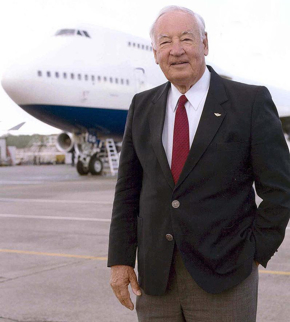Boeing remembers father of 747 airplane

Joe Sutter, who is known at the "Father of the 747"
When shippers need to move valuable cargo long distances in a hurry, they often turn to air cargo. More expensive than options like sea, rail, or truck, air freight has one great advantage—speed. Today, most people take for granted the ability to whisk inventory from coast to coast in a few hours, but few outside the aviation industry remember the name of Joe Sutter.
Sutter, who passed away Aug. 30 at the age of 95, is known in the aviation trade as the "Father of the 747." Although he had a hand in many iconic commercial airplane projects, he secured his place in history by leading the team of Boeing engineers that designed the 747 jumbo jet—a team that became known as the "Incredibles" for their feat of producing what was then the world's largest airplane in a 29-month period in the mid-1960s.
Boeing went on to sell more than 1,500 747s after completing the original version in 1968, according to the New York Times. The plane was a smash hit because it could haul more passengers and cargo than other aircraft, while flying faster and farther than its competitors could without stopping to refuel.
The 747 also boasted a 20-foot-wide twin-aisle passenger cabin, fully seven feet wider than the cabin of its predecessor, the 707. And Sutter made one more design decision that would influence the airfreight industry for decades—he left space for the eight-foot-square cargo containers that would eventually become the global standard for air freight.
Related Articles
Copyright ©2024. All Rights ReservedDesign, CMS, Hosting & Web Development :: ePublishing